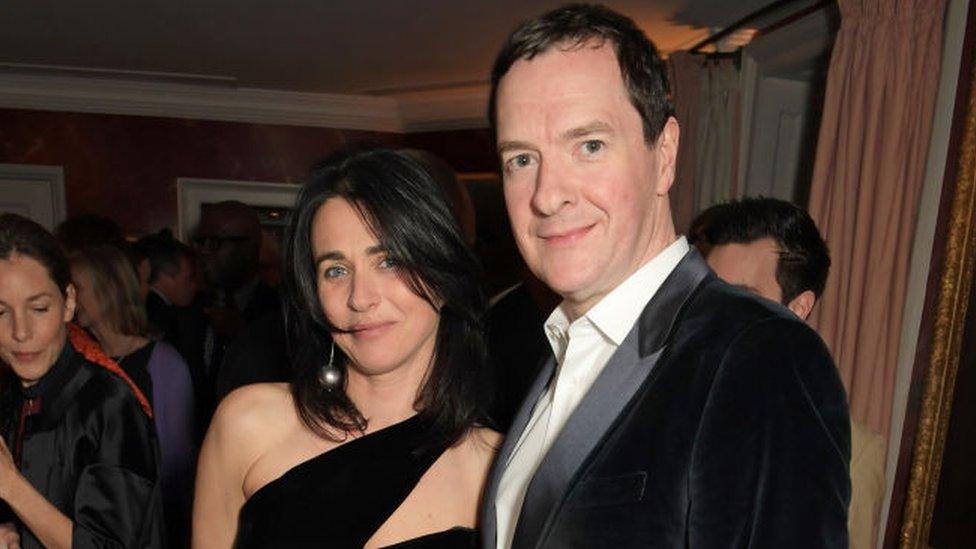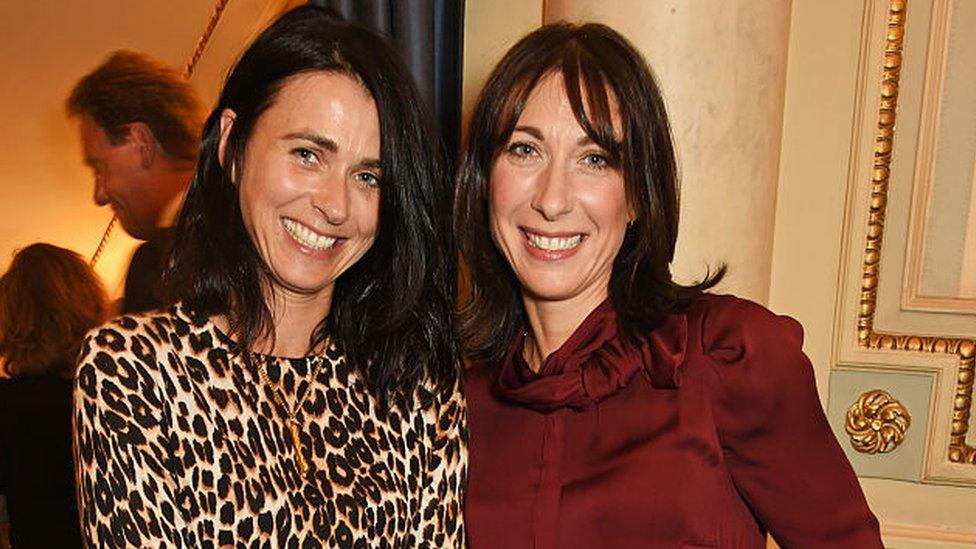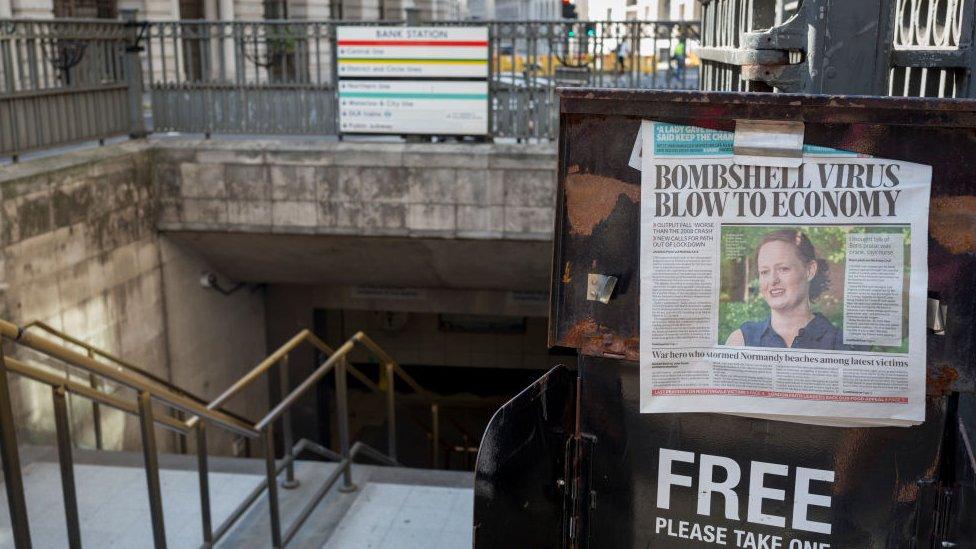Why saving the (print) Evening Standard will be tough
- Published

Emily Sheffield is replacing George Osborne at London's Evening Standard newspaper
The Evening Standard is in big trouble and Emily Sheffield might be the last editor of its print edition.
That's not the welcome most editors dream about, of course. Much of her tenure is certain to be a nightmare - often for reasons far beyond her control. Simply to keep the print edition going while producing high-quality journalism would count as a victory.
She replaces her friend George Osborne, who will move to the much less hands-on role of editor-in-chief.
The political connection - Sheffield is the sister-in-law of David Cameron - has led to immediate accusations of nepotism, and British media being a revolving door.

Sheffield is the sister of Samantha Cameron
Indeed, the connections of Sheffield, Osborne and Evgeny Lebedev - the main owner of the Evening Standard, in partnership with the Saudi Research and Marketing Group, which is ultimately controlled by Crown Prince Mohammed bin Salman - will need to be fully deployed if the print title is to be saved. (Full disclosure: I worked for Lebedev for six years).
On Twitter, Sheffield said, external: "The newspaper remains a core element to this outstanding legacy news organisation. It has survived this crisis and it will survive many more".
As editor she has to say that, and clearly she and the paper's excellent staff will do their utmost to keep it in print; but she takes over a business whose current financial condition makes the word "crisis" seem like a euphemism.
The Standard, as I have written before, was uniquely exposed when this pandemic came along.
It is very heavily reliant on income from its print edition, and has an under-developed digital operation, which Sheffield is charged with boosting.

The print edition of the Standard is dependent on footfall
As a free title, the income for its print edition doesn't come from readers paying a cover price. It comes from advertising. Advertising has been decimated in recent months, partly because marketing spend is one of the first things to go in a downturn - and this is a mega downturn; and partly because brands don't want to be seen next to stories about a virus or people in care homes dying.
The Standard is also very heavily reliant on footfall: thousands of commuters using stations and stalls to pick up the paper. That's gone.
Finally, unlike Metro, which is part of the Daily Mail group, the Standard is in a small company, along with The Independent (where I was editor until March 2016) and London Live.
This is a huge exposure.
Some kind of subsidy might be necessary to keep the paper going. The tolerance of the current owners for the current losses is not sustainable. Where might such a subsidy come from?
Huge uncertainty
Right now, many local papers in the UK are becoming dependent on Californian tech giants for direct grants. Might the Standard create a new partnership with one such firm? That's tricky, given they are meant to be politically neutral.
What about central government? Journalists feel instinctively queasy about taking money from governments they are meant to be holding to account. But government subsidy takes many forms. The furlough scheme is one such. Are there others?
Editors want to edit. Editing is an exercise in selection: what stories, pictures, campaigns, headlines, and so on. But the Standard's model, which is not driven by cover price revenue, makes the editor position much, much more commercial than most. And that's before you throw a vulnerable business model and a global pandemic in.
While Sheffield's appointment will inevitably garner more interest, the Standard recently appointed Charles Yardley of Forbes as its CEO. He, ultimately, is responsible for the bottom line.
The hope for Sheffield, who worked for the Standard under Max Hastings and was deputy editor of Vogue, is that she gets the freedom and the chance to do the fun bit of editing while trying, with Yardley, Osborne and Lebedev, to turn the business around.
For the title's staff, who have endured huge uncertainty and anxiety in recent months, a new boss should provide an energising effect. They know better than most that saving this part of London culture will be a long and painful haul.
If you're interested in issues such as these, please follow me on Twitter, external or Instagram, external; and also please subscribe to The Media Show podcast, external from Radio 4.
